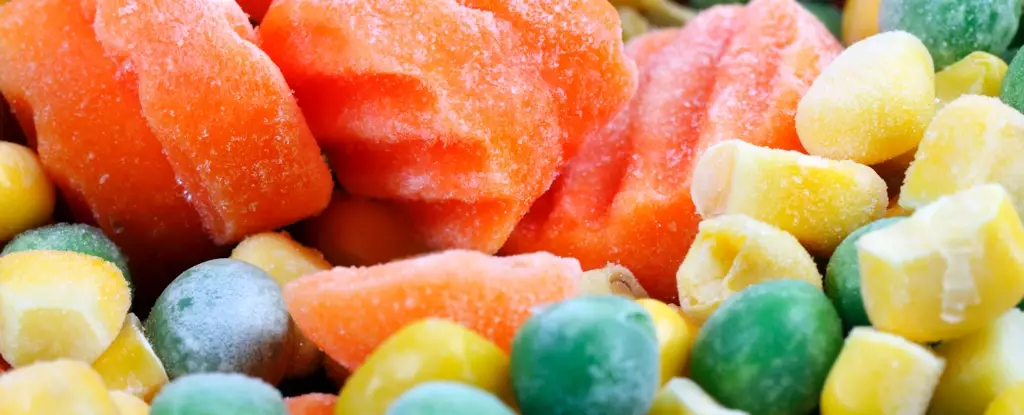The rising cost of living has forced many people to tighten their budgets, resulting in changes in spending habits, particularly when it comes to the weekly supermarket shop. One area that seems to be taking a hit is the consumption of fresh fruit and vegetables. Recent data from the Australian Bureau of Statistics (ABS) indicates that Australians are eating less fruit and vegetables in 2022–23 compared to the previous year. This decline in consumption is further exacerbating an existing issue – Australians, in general, do not consume enough fruit and vegetables.
The Importance of Fruit and Vegetables in a Balanced Diet
Eating an adequate amount of fruit and vegetables is essential for maintaining a healthy and balanced diet. Australian dietary guidelines recommend that individuals aged nine and older should aim to consume two servings of fruit and five servings of vegetables each day for optimal health. However, according to the ABS, only 4 percent of Australians met these recommendations for both fruit and vegetable intake in 2022. Fruit and vegetables are rich sources of essential vitamins, minerals, and fiber, making them crucial components of a nutritious diet.
Exploring Alternatives to Fresh Produce
While fresh produce is often considered the most nutritious option, there are alternatives that can provide similar benefits, especially when affordability becomes a concern. Frozen fruits and vegetables, for example, are often higher in some nutrients, such as vitamin C and E, as they are snap-frozen closer to the time of harvest. Additionally, frozen produce offers the advantage of extended shelf life, reducing food waste by allowing consumers to use only what they need at any given time.
Frozen fruits and vegetables can be incorporated into a variety of dishes, including roasted, steamed, soups, stews, casseroles, curries, pies, and quiches. While frozen produce may not be suitable for salads, they serve as excellent ingredients for cooked meals. Frozen fruits can also be added to breakfast dishes or used in baking, such as fruit pies and cakes. By blanching fresh produce before freezing it, consumers can improve both the safety and quality of the produce for later use.
Canned fruits and vegetables offer a cost-effective alternative to fresh produce and are convenient to have on hand. The canning process serves as a preservation technique, eliminating the need for additional preservatives. While levels of heat-sensitive nutrients like vitamin C may slightly decrease during the cooking process, canned produce can still provide essential nutrients. To minimize nutrient loss, canned vegetables can be added later in the cooking process when preparing hot dishes.
Strategies for Incorporating More Fresh Produce on a Budget
Despite the challenges of rising costs, there are practical ways to include more fresh produce in your diet without breaking the bank. By buying seasonal and locally sourced fruits and vegetables, consumers can take advantage of lower prices based on supply and demand principles. Embracing “ugly” fruit and vegetables that may not meet aesthetic standards but retain the same nutrients and flavors is another way to save on fresh produce costs.
Tips for Reducing Food Waste and Maximizing Fresh Produce
Proper meal planning and organization can help minimize food waste, saving consumers money and benefiting the environment. Australians throw out thousands of dollars worth of food each year, with fruits, vegetables, and bagged salads among the most commonly discarded items. By freezing excess produce, sharing surplus items with others, and growing your own fruits and vegetables at home, individuals can offset some of the costs associated with purchasing fresh produce. Gardening, even in small spaces, can be a rewarding and cost-effective way to enjoy fresh, homegrown produce while minimizing waste.


Leave a Reply